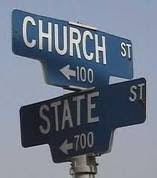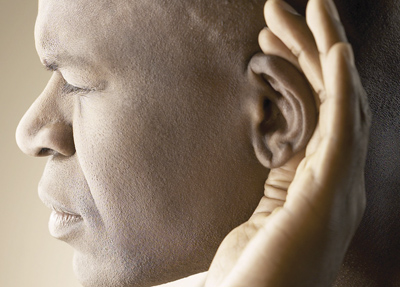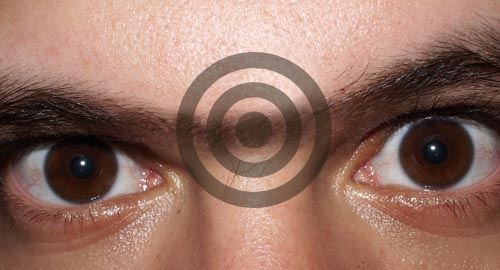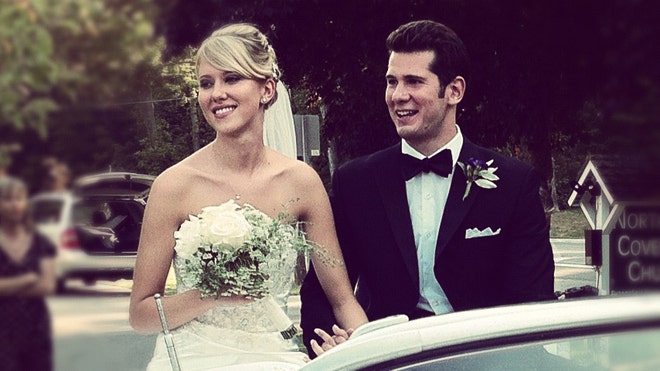Here we go again. Several US embassies have been stormed, in some cases 
invaded, the US flag torn down, and, in at least one case, personnel killed. I am a citizen of the United States, and am hurt on that level. I mourn for, and pray for those who have suffered loss, and hope that my leaders will take appropriate action.
I write today, however, not primarily as an American but as a Christian and a pastor of an Evangelical, Christian Church. Let me make a couple of points. I share them with the hope of bringing greater clarity to the thinking of fellow Christians, and, should this be read by any Muslims, to offer some greater understanding.
- Please understand that the United States is not really a "Christian nation." It is a nation whose culture and laws have been greatly influenced by Christianity, but it is not Christian--certainly not in the sense that many nations in the world can be said to be "Islamic nations." This will anger some of my
 Christian brethren and will likely be incomprehensible to some Muslims, but I am glad that my nation is not a Christian country. On the day of Pentecost (Acts 2) the church was born into hostile territory. The church is counter-cultural. I am a citizen of the United States, but I am also a citizen of heaven. Sometimes those two are in conflict. When they are, I must serve God rather than man. Christian brethren and will likely be incomprehensible to some Muslims, but I am glad that my nation is not a Christian country. On the day of Pentecost (Acts 2) the church was born into hostile territory. The church is counter-cultural. I am a citizen of the United States, but I am also a citizen of heaven. Sometimes those two are in conflict. When they are, I must serve God rather than man.
- I do not expect the government to do the work of the church. If I understand correctly, Islam sees religion and state as a monolith. The job of the government is to create a society that will encourage, even enforce being a good Muslim. I am thankful--and I believe it is in the best interest of my society--that by and large being a Christian is compatible with being a good, even patriotic, American, but they are not the same. I don't want them to be the same. I want my government to give me the freedom to be a good Christian. As I see it, that means that my government also needs to extend to people the right to be good Muslims, Hindus, Jews, or atheists.
- There are things that go on in my nation that I object to. Some, like the liberal laws in regard to abortion, I oppose politically. Others, like the posting of needlessly and foolishly offensive videos online, I may condemn, as I am here, but I acknowledge that in a nation that recognizes freedom, such excesses may be necessary. To put it in other words. I do not appreciate people using the name of my Lord and Savior Jesus Christ as cuss-words. I figure, though, that if my government tries to make a law against that kind of cussing that they would get it so wrong that it might make it impossible to talk.
- Just one more, today (I may continue.):
I think it is wrong for Christians to needlessly say or do offensive things about, or to, persons or symbols of other religions. I have spoken against the burning of the Quran. It appears to me that the Apostle Paul condemned the desecration of temples even though these houses of worship were dedicated to dieties that he regarded as false (Romans 2:22). When dealing with the idolatry of Athens, he did not desecrate the objects of their devotion. He entered into intelligent dialogue. (Sure in the Old Testament we find passages like Isaiah 44:9-17 where the case against the worship of a false diety is made with humor and ridicule, but at this point Isaiah was preaching to what should have been the choir. When we Christians are speaking to the wider world, the Apostles Paul (above) and Peter--make sure you notice those words, "gentleness and reverence"--ought to be our model.
My challenge to fellow Christians: Let's eschew the burning of books that others regard as holy, and let's avoid, and counsel others to have nothing to do with needlessly offensive books, pictures, videos, etc.
To Muslim fellow citizens of the US or the world, know that true Christians do not hate you. We profoundly disagree with you, but our desire is to live in harmony, and engage in respectful discussion of life's most important issues.
The heart of that message to which I am committed is found below:
|


 Highlands of Virginia.
Highlands of Virginia. listening hard, I wouldn't have really heard. Moms who love their little ones will step to the nursery door, and listen hard to discern whether the little one who has been sick is breathing well and sleeping soundly. If she doesn't hear the wheeze or rattle, the baby's sickness could get worse for lack of care. She listens hard.
listening hard, I wouldn't have really heard. Moms who love their little ones will step to the nursery door, and listen hard to discern whether the little one who has been sick is breathing well and sleeping soundly. If she doesn't hear the wheeze or rattle, the baby's sickness could get worse for lack of care. She listens hard. -correctness made such silly insults illegal, adults used to tell children, "You must have a hole through your head. What I say goes in one ear and out the other."
-correctness made such silly insults illegal, adults used to tell children, "You must have a hole through your head. What I say goes in one ear and out the other."
 anyone else payed attention. "It's just Charlie. He sleeps every Sunday morning." If he snored a nearby pew-sitter would give him an elbow. Sometimes, however, when he had settled in for a long sermon's nap, I would play my game.
anyone else payed attention. "It's just Charlie. He sleeps every Sunday morning." If he snored a nearby pew-sitter would give him an elbow. Sometimes, however, when he had settled in for a long sermon's nap, I would play my game.  point memorable. It is a technique that works. Move from one person to the next. The congregation realizes I'm not preaching to a crowd, but to Fred, Mary, Pete, Sally, andCharlie, but Charlie isn't listening. He's sleeping. Here's the game part: I'd focus on that spot on Charlies forehead--or as close as I could get, sometimes the top of his head or the underside of his chin. Only instead of staring for a moment and then going to the next target, I'd just keep staring at Charlie, while going right on with my preaching. After a few seconds, everybody in the congregation, who wasn't pulling a Charlie, knew I was staring at him, and--it never failed--someone next to him would elbow him, or somebody behind him would grab his shoulder, or, even, a person in the pew in front of him would turn and give him that loud, staccato whisper, "Charlie!"
point memorable. It is a technique that works. Move from one person to the next. The congregation realizes I'm not preaching to a crowd, but to Fred, Mary, Pete, Sally, andCharlie, but Charlie isn't listening. He's sleeping. Here's the game part: I'd focus on that spot on Charlies forehead--or as close as I could get, sometimes the top of his head or the underside of his chin. Only instead of staring for a moment and then going to the next target, I'd just keep staring at Charlie, while going right on with my preaching. After a few seconds, everybody in the congregation, who wasn't pulling a Charlie, knew I was staring at him, and--it never failed--someone next to him would elbow him, or somebody behind him would grab his shoulder, or, even, a person in the pew in front of him would turn and give him that loud, staccato whisper, "Charlie!" 
 Congratulations to Mr. Mrs. Steven Crowder. I wasn't able to attend their wedding, but they look like a lovely couple. The fact is I had never heard of the folk until
Congratulations to Mr. Mrs. Steven Crowder. I wasn't able to attend their wedding, but they look like a lovely couple. The fact is I had never heard of the folk until  us a set of instructions for life contained in His Word. He came to earth to be our Savior. While here he said, "I came to give you life to the full." (John 10:10) Satan, on the other hand has been saying ever since
us a set of instructions for life contained in His Word. He came to earth to be our Savior. While here he said, "I came to give you life to the full." (John 10:10) Satan, on the other hand has been saying ever since 
 A verse I referenced yesterday, 1 Peter 3:15, says, "Sanctify Christ as Lord in your hearts, always being ready to make a defense to everyone who asks you to give an account for the hope that is in you, yet with gentleness and reverence;" Make a defense, give an account. The first word is "apologia"--not "I'm sorry," but a thoughtfully crafted case for the truth of what is believed. The second word is "logos," word or speech. The progression is:
A verse I referenced yesterday, 1 Peter 3:15, says, "Sanctify Christ as Lord in your hearts, always being ready to make a defense to everyone who asks you to give an account for the hope that is in you, yet with gentleness and reverence;" Make a defense, give an account. The first word is "apologia"--not "I'm sorry," but a thoughtfully crafted case for the truth of what is believed. The second word is "logos," word or speech. The progression is: